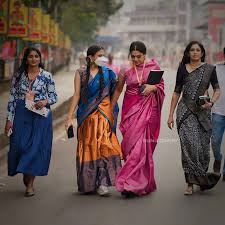
West Bengal Introduces New Workplace Safety Guidelines for Women

 :
| Updated On: 01-Aug-2025 @ 12:21 pm
:
| Updated On: 01-Aug-2025 @ 12:21 pmSHARE
The West Bengal government is preparing to implement comprehensive guidelines aimed at improving the safety of women working night shifts across several key sectors, including information technology, healthcare, transport, and law enforcement. This initiative comes in the wake of the tragic rape and murder of a female doctor at RG Kar Medical College and Hospital in August the previous year, which sparked public outrage and demands for better workplace safety. In response, Chief Minister Mamata Banerjee assured the public that robust safety measures would be put in place. The move also follows a directive from the courts to ensure stricter workplace security for women.
The new policy, currently in draft form with 22 specific points, is designed to prioritize the protection and well-being of female employees working during the night. One of the central components of the policy is that night shifts for women will be strictly voluntary. Employers must secure written consent from female staff members who choose to work during the night hours, defined as 8:00 PM to 6:00 AM.
To ensure secure transportation, companies are required to provide vehicles that are equipped with GPS tracking systems. These vehicles must also have trained female security personnel and emergency alarms to address any potential threats during commutes. This is intended to reassure female employees and encourage a safer travel experience during odd hours.
The guidelines also establish specific staffing requirements during night shifts. A minimum of 10 women or at least one-third of the total staff present during the shift must be female. This rule is designed to prevent isolation and ensure a supportive environment for women on duty.
Regarding infrastructure and safety at the workplace, employers are required to provide essential facilities such as rest areas, canteens, and access to ambulances. Furthermore, the installation of CCTV cameras at entry and exit points, as well as in hallways and other critical zones, is mandated to deter criminal activities and ensure continuous monitoring.
Every organization must also establish an Internal Complaints Committee (ICC) to handle grievances related to workplace misconduct, especially concerning sexual harassment. This step aligns with India’s existing laws under the POSH (Prevention of Sexual Harassment) Act and reinforces accountability within workplaces.
To boost emergency preparedness, companies must prominently display emergency contact numbers throughout the premises. In addition, the organization’s safety policies should be clearly communicated in the local language to ensure they are understood by all employees, regardless of educational background or literacy level.
The state government has invited feedback from stakeholders across various sectors to refine and enhance these guidelines before final implementation. This inclusive approach aims to ensure that the policy is practical, effective, and widely accepted.
Ultimately, these safety guidelines underscore the state’s commitment to building a work environment where women feel protected and respected. The comprehensive nature of the draft policy reflects an understanding that women’s safety requires coordinated efforts in transportation, staffing, infrastructure, legal compliance, and emergency response. If effectively implemented, the policy has the potential to serve as a model for other Indian states to follow in promoting workplace safety and gender inclusivity.